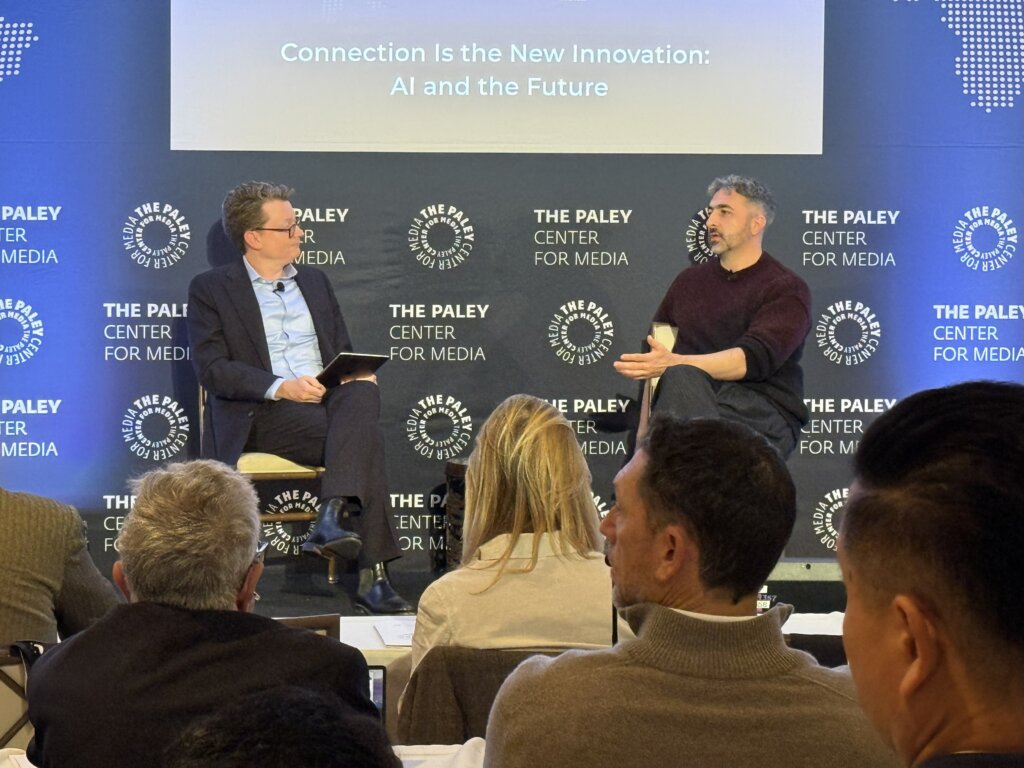What happens when AI becomes an invisible companion in everyday life? What can other forms of media and entertainment learn from gaming? And why should leaders rethink skills and talent strategies?
These were some of the big questions tackled by three Microsoft leaders last week at the Paley International Council Summit, an annual event that brings together global CEOs, tech leaders, policymakers and creatives to talk about the future of media and technology.
Microsoft AI CEO Mustafa Suleyman, Microsoft Gaming CEO Phil Spencer and LinkedIn CEO Ryan Roslansky each shared their vision for what’s next. Here are some of the key takeaways from each session:
Mustafa Suleyman, CEO, Microsoft AI
Suleyman discussed how AI is rapidly becoming a seamless part of everyday technology, moving beyond standalone apps to integrate directly into operating systems, browsers and devices. Instead of relying on traditional buttons and menus, AI will understand natural language, allowing users to simply speak or type requests and have tasks carried out for them — whether it’s finding settings, clicking buttons, managing schedules or navigating complex menus.
Acting as a personalized companion, AI will learn individual preferences to offer tailored support, automate repetitive tasks and keep users organized. And it does this all while working quietly in the background to create a unified and effortless experience for everyone, regardless of their technical skill, according to Suleyman.
“We’re reinventing every platform today,” Suleyman said. “Copilot on Windows can take control of your mouse and keyboard if you’ve granted permission, and you can click on buttons that can find settings that can highlight areas where you should pay attention. It will use your operating system for you.
“In Edge, our browser, it can use the search engine. It can buy things and book things,” he explained. “You know, it really is going to be working on your behalf with you as a kind of overseer.”

Phil Spencer, CEO, Microsoft Gaming
With over 3 billion players worldwide, gaming isn’t just entertainment — it’s a cultural powerhouse, eclipsing the combined size of the film, books and music industries. Spencer emphasized that gaming is redefining how we connect, engage and experience media, setting bold new standards for interactivity. He and Tim Schafer, founder and studio head of Double Fine Productions, discussed why insights from gaming — whether born from indie creativity or blockbuster ambition — are shaping the future of all entertainment.
“The barrier between consumer and creator is as thin as it’s ever been,” Spencer said. “A game is a game — big franchise or small team — what matters is the story and the audience it reaches.”
As entertainment evolves, the lessons from gaming are clear: scale across formats, invite audiences into the creative process, and leverage technology to grow responsibly. The future of media will mirror gaming’s strengths, including interactive worlds, thriving communities and creative ecosystems where fans and creators collaborate to shape the experience.
“The things that we learn in games apply to all forms of media. The lines between different media formats are going to continue to blur,” Spencer said. “So, if you’re running a movie studio or a television network, think about community, think about interactivity.”
Ryan Roslansky, CEO, LinkedIn
This conversation explored how AI is reshaping the workforce strategy — from hiring and upskilling to culture and performance. Ryan shared insights on how skills, jobs and careers are evolving and how leaders can best align talent and technology to drive innovation, resilience and long-term growth.
“Here’s the reality: the skills that got you here won’t get you there,” Roslansky said. “LinkedIn’s data shows that entire skill sets are being rewritten in real time.”
He explained that 10 years ago, the average job changed about 25%, in terms of required skills. By 2030, data shows that shift could be as much as 70%.
“That means the job you’re doing today may look nothing like the job you’ll be doing tomorrow. So, what’s emerging fastest? AI literacy, adaptability and human-centered leadership,” Roslansky said. “Leaders need to stop hiring for yesterday’s job descriptions and start hiring for potential.
“And they need to create cultures of continuous learning: microlearning, real-world projects and personalized development. The companies that thrive won’t be the ones with the best resumes. They’ll be the ones with the best ability to learn and evolve.”
Lead image: From left to right, Mustafa Suleyman, CEO of Microsoft AI; Phil Spencer, CEO of Microsoft Gaming; and Ryan Roslansky, CEO of LinkedIn.